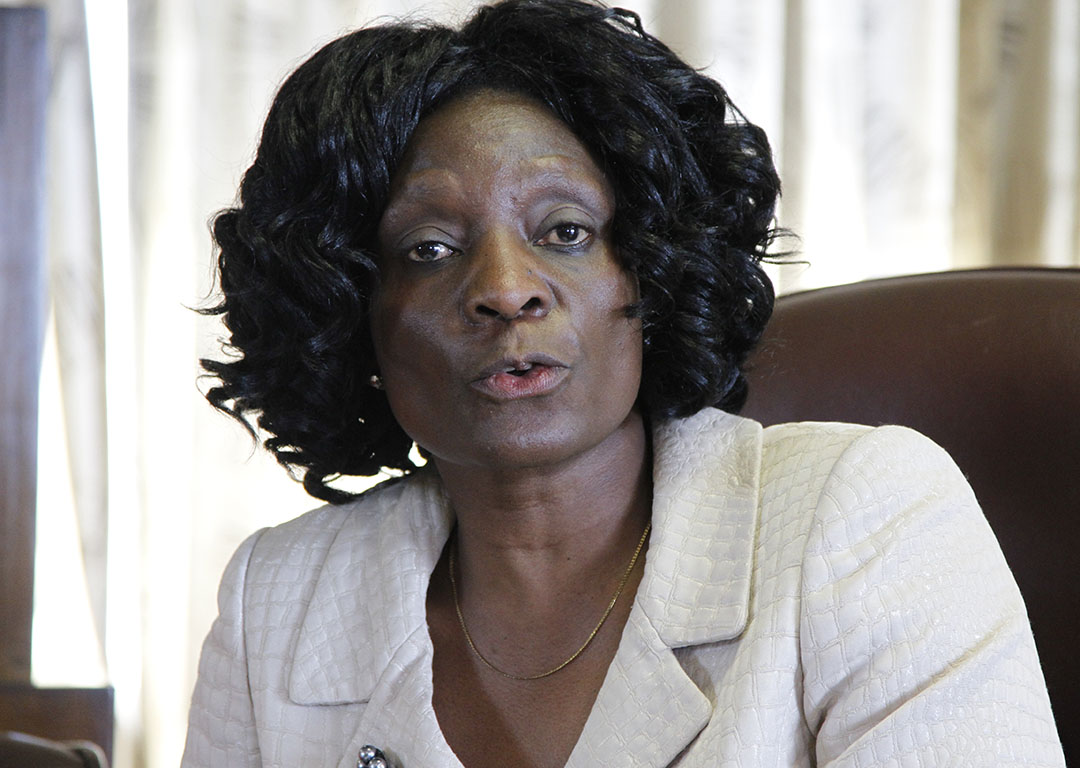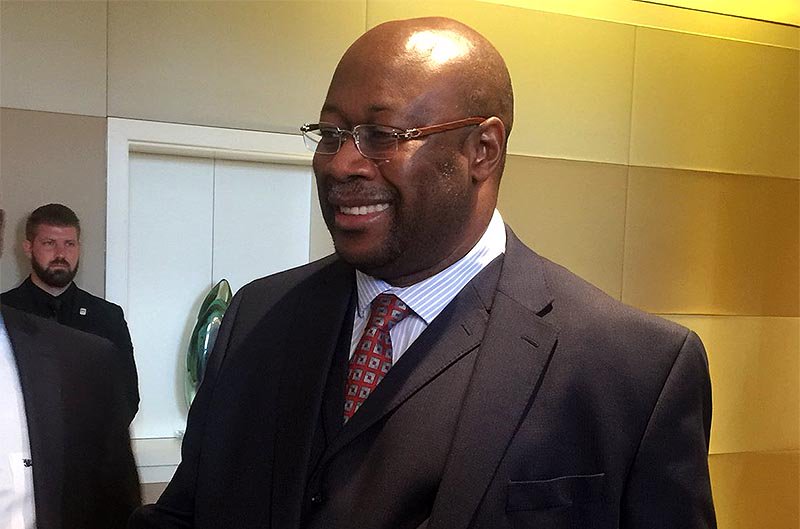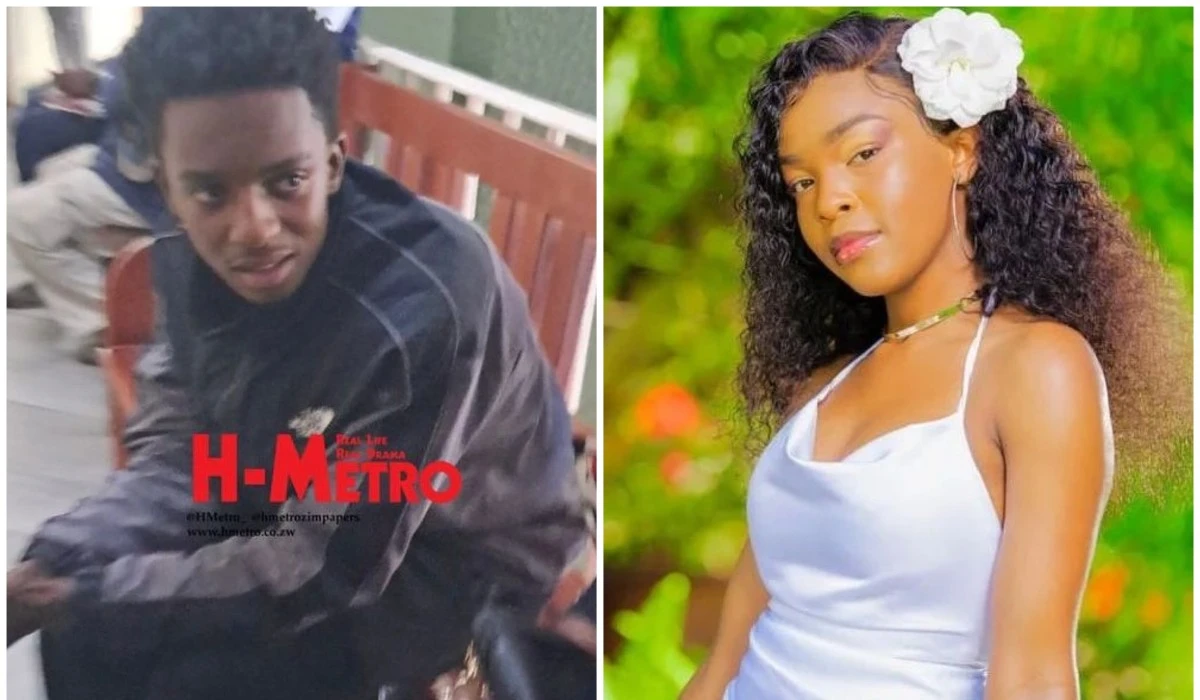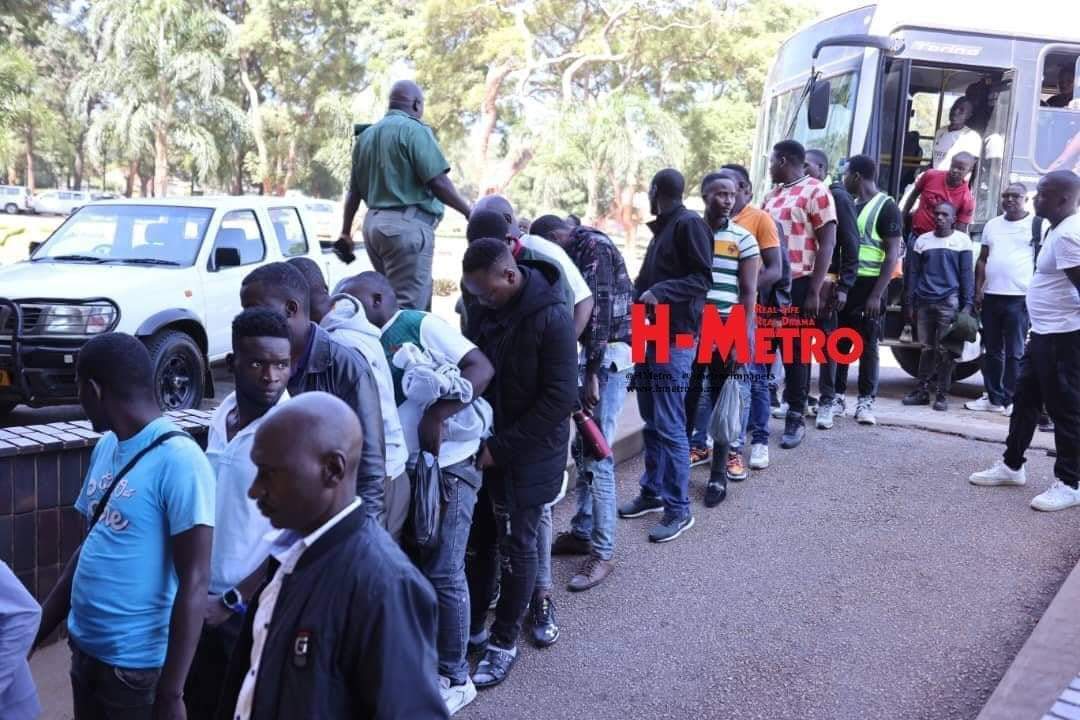HARARE – President Emmerson Mnangagwa on Wednesday named five judges to the Constitutional Court bench after months of inaction, in the process delivering a snub to Justice Happias Zhou, who last week ruled that the purported extension of Chief Justice Luke Malaba’s term past the retirement age of 70 was illegal.
Justices Ben Hlatshwayo, Paddington Garwe, Anne-Marie Goora, Rita Makarau and Bharat Patel will constitute the Constitutional Court together with the Chief Justice and Deputy Chief Justice.
The appointments – coming after a seismic May 15 judgement by three High Court judges including Zhou, which appears to have ended Malaba’s 40-year legal career – are seen as Mnangagwa’s attempt to deal with a constitutional crisis that has arisen.
The government appealed the High Court ruling at the Constitutional Court in a bid to keep Malaba on as Chief Justice – but legal experts say none of the judges can hear the appeal after they were all cited as respondents in the matter.
“That will not solve the constitutional conundrum… They’re all conflicted,” said Dr Alex Magaisa, a law lecturer at Kent University in the United Kingdom.
The new Constitutional Court judges, formerly of the Supreme Court, sat through public interviews in September last year and the Judicial Service Commission (JSC) sent its recommendations to Mnangagwa a month later. It was reported at the time that Justice Zhou came third in the public interviews, but a conspiracy between Malaba and the JSC saw his name omitted from the final list of five sent to Mnangagwa.
The other applicants overlooked were Justices Chinembiri Bhunu, Charles Hungwe, Smart Mirirai, Donald Stevenson Corke, David George Bartlett (Retired) and lawyer Arnold Tsunga.
Without giving reasons, Mnangagwa delayed announcing the appointments even as lawyers warned that the practice by then Chief Justice Malaba to appoint Supreme Court judges as acting judges of the Constitutional Court was illegal.
The Constitutional Court was established by a new Zimbabwe constitution adopted following a public referendum on May 22, 2013.
Until May 22, 2020 – the seventh anniversary of the partial coming into force of the 2013 Constitution – the composition of the Constitutional Court was regulated by the transitional provisions of paragraph 18(2) and (3) of the Sixth Schedule to the Constitution. Under those transitional provisions, the Constitutional Court was to consist of the Chief Justice and the Deputy Chief Justice and seven other judges of the Supreme Court sitting together as a bench to hear any constitutional matters.
The transitional arrangement expired in May last year by operation of law. Its place was taken by the permanent provisions of section 166 of the Constitution, under which the Constitutional Court is an entirely separate court consisting of the Chief Justice, the Deputy Chief Justice and “five other judges of the Constitutional Court” – meaning judges appointed specifically as judges of the Constitutional Court.
Chief Justice Malaba and Deputy Chief Justice Elizabeth Gwaunza, therefore, automatically became judges of the new, separate Constitutional Court.
Prominent lawyer Advocate Thabani Mpofu recently argued that by delaying appointing Constitutional Court judges well after May last year, Mnangagwa had created an illegality where Malaba continued to appoint acting judges of the court.
Mpofu said last month: “Constitutionally, the Chief Justice cannot appoint judges to the Constitutional Court, less so as acting judges. As matters stand, we have five acting judges who were appointed contrary to the clear dictates of section 166 of the constitution. At present, we do not have a Constitutional Court.”
The recent High Court ruling appears to have finally forced Mnangagwa’s hand, even as lawyers say the appointed judges are prevented from hearing the government’s appeal in the Malaba ruling.
The new Constitutional Court judges will be sworn in by Deputy Chief Justice Gwaunza on Thursday.















